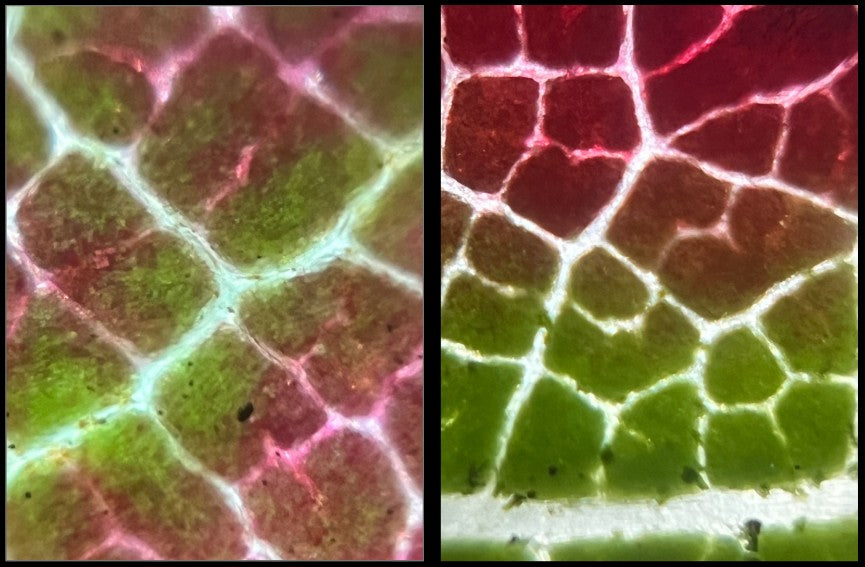Recently I noticed a lot of mushrooms growing around my neighborhood. There were several clusters of them on the ground and they seemed to pop up overnight. Of course this inspired me to take a closer look at these mushrooms under my Foldscope 2.0! Read on to find out what I saw!

What are mushrooms?
Although mushrooms give the appearance of being plant-like in nature, they are actually members of the fungi kingdom. The mushroom portion that appears above ground is only one part of the whole organism. The other parts of the fungus include the hyphae or mycelium, the stalk, the gills, and the cap. What we call a “mushroom” is actually the fruit of the fungus.

Hyphae and Cap
The hyphae of mushrooms are individual strands that branch out from spores forming an extensive subterranean system of the fungus known collectively as the mycelium. These structures spread wide underground searching for water and nutrients. The mycelium also secretes chemicals that break down dying organic material. Because mushrooms eat decomposing material, they can usually be found on or near rotting logs. While I did not dig underground to access the mycelial network of the mushroom, I was able to see some filamentous structures on the surface of the cap. The cap is the top of the mushroom that covers the gills.

Stalk
The stalk of the mushroom is the structure that gives support to the cap as it rises up out of the ground. Mushroom stalks grow very quickly. Some mushrooms can double in size every day for 5-7 days! Stalks are sturdy because their cell walls are composed of chitin - which is also the major component of insect exoskeletons!

Gills and Spores
The gills of a mushroom are found on the underside of the cap. The gills are where the spores get released to the ground. Gills can come in many shapes - straight, wavy, or branched. Mushroom spores are dispersed from the gills and either fall directly to the ground or get carried away to a new location by the wind.

I am always amazed at how much more I can appreciate common everyday things, like mushrooms, when I look at them closely under a Foldscope. In addition to learning more about them, I take joy in the beauty of their inner structures. I like knowing that microscopy is not only a scientific endeavor, but also an artistic one.

Have you looked at mushrooms under a Foldscope 2.0? Use your Foldscope to dive into the microscopic world and find the beauty that is there waiting for you. Share your microscopic images and thoughts on the Microcosmos. Be sure to tag us on social media when you post the results of your explorations, creations, and discoveries! We love to see how Foldscopers around the world are using their Foldscopes in new and innovative ways!
Facebook: @Foldscope
Twitter: @TeamFoldscope
Instagram: @teamfoldscope
Threads: @teamfoldscope
Sources:
https://www.mushroomcouncil.org/schools/mushroom-facts-for-kids/



